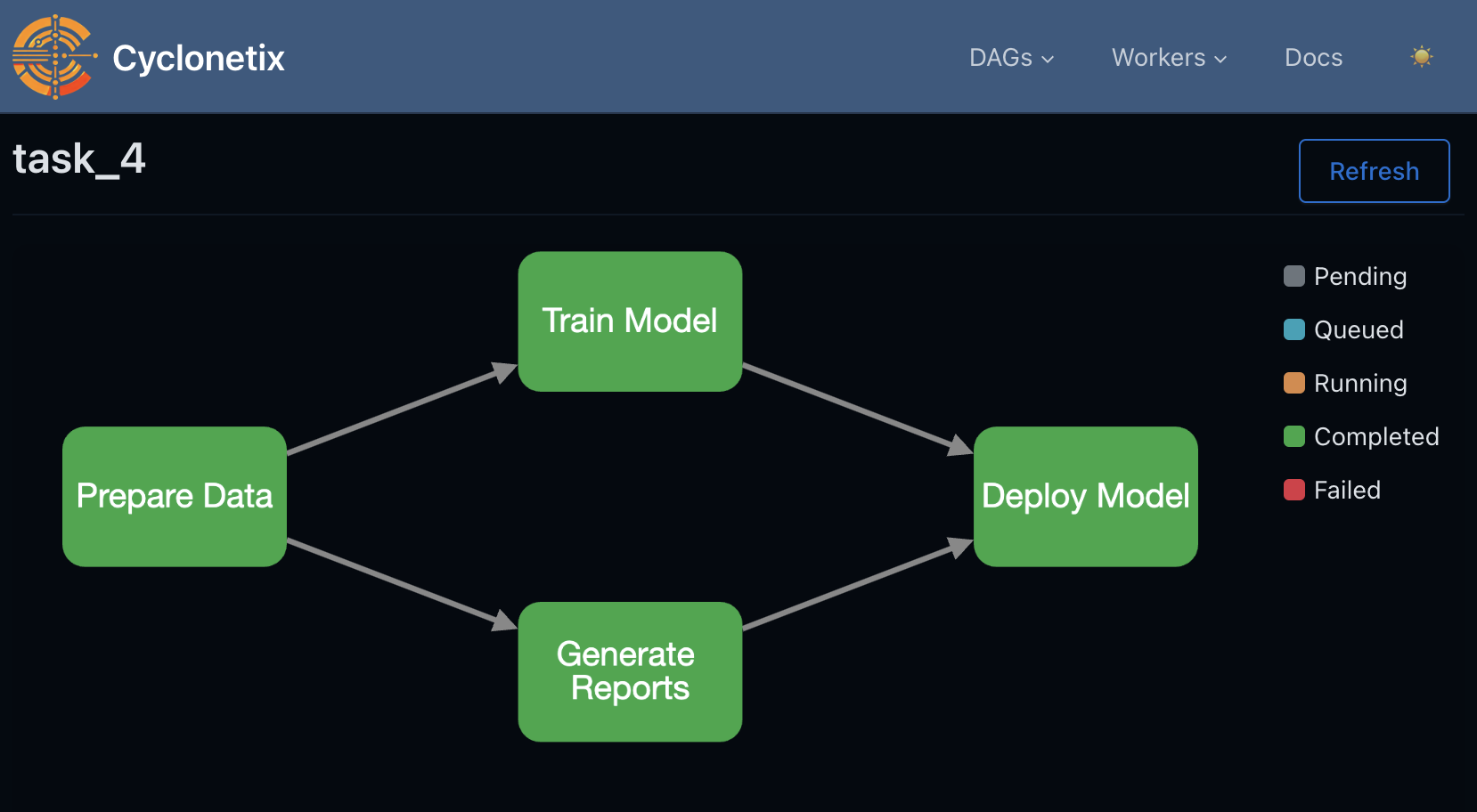Tasks and Dependencies
Tasks are the fundamental building blocks in Cyclonetix. Understanding how they work and how dependencies between them are managed is essential to effectively use the system.
Tasks
A task in Cyclonetix represents a single unit of work that needs to be executed. Each task has:
- A unique identifier
- A command to execute
- Optional dependencies on other tasks
- Optional parameters for customization
- A specified queue for execution
Task Templates vs Task Instances
Cyclonetix distinguishes between task definitions and their execution instances:
- Task Template: The immutable definition of a task, stored as YAML.
- Task Instance: A specific execution of a task with its runtime state.
When a task is scheduled, Cyclonetix creates a Task Instance from the Task Template, generating a unique run ID for tracking.
Task Lifecycle
Each task goes through a series of states during its lifecycle:
- Pending: Task is defined but not yet scheduled
- Queued: Task is ready for execution and waiting in a queue
- Running: Task is currently being executed by an agent
- Completed: Task finished execution successfully
- Failed: Task execution failed
Task Definition YAML
Here’s an example of a task definition in YAML format:
id: "data_preprocessing"
name: "Data Preprocessing"
description: "Preprocess raw data for model training"
command: "python3 scripts/preprocess.py --input ${INPUT_FILE} --output ${OUTPUT_FILE}"
parameters:
inputPath: "/data/raw"
outputPath: "/data/processed"
mode: "full"
dependencies:
- "data_download"
queue: "data_processing"Dependencies
Dependencies define the relationships between tasks, establishing the execution order.
Direct Dependencies
The most common form of dependency is a direct dependency where one task requires another to complete before it can start:
id: "model_training"
# ...
dependencies:
- "data_preprocessing"In this example, model_training will only start after data_preprocessing has successfully completed.
Parameterized Dependencies
Cyclonetix supports parameterized dependencies, allowing you to depend on a specific variant of a task:
id: "model_deployment"
# ...
dependencies:
- "model_training:production"This creates a dependency on the model_training task specifically when run with the production parameter set.
Dependency Resolution
When using outcome-based scheduling, Cyclonetix automatically resolves the full dependency chain:
- Identify the target task (the “outcome”)
- Recursively gather all dependencies
- Build a directed acyclic graph (DAG) representing the execution order
- Execute tasks in topological order, respecting dependencies
Dependency Graph Visualization
The Cyclonetix UI provides visualization of task dependencies as a graph, making it easy to understand workflow structure:

Execution Queues
Tasks can be assigned to specific queues, allowing for:
- Workload categorization
- Resource allocation
- Parallel execution across multiple agents
id: "gpu_training"
# ...
queue: "gpu_tasks"Agents can be configured to listen to specific queues, enabling specialized workers for different task types.
Next Steps
- Learn about Execution Flow
- Understand Scheduling Models
- See how to define Tasks in practice